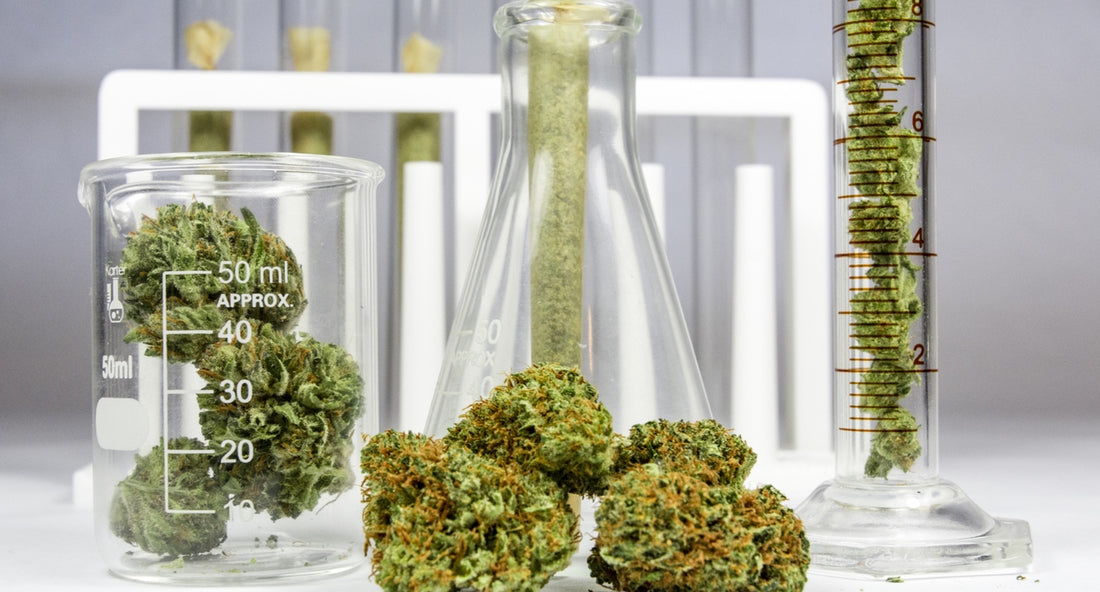Cannabidivarin (CBDV) is a non-psychoactive naturally occurring compound found in hemp and cannabis that has gained attention for its potential therapeutic benefits.
Here are some of the potential benefits of CBDV:
-
Anticonvulsant: CBDV has been shown to have anticonvulsant properties, which means it may help reduce seizures in people with epilepsy.
-
Neuroprotective: CBDV has been shown to have neuroprotective properties, which means it may help protect the brain from damage caused by neurological conditions such as Parkinson's disease and multiple sclerosis.
-
Anti-inflammatory: CBDV has been shown to have anti-inflammatory properties, which means it may help reduce inflammation in the body and alleviate symptoms associated with inflammatory conditions such as arthritis.
-
Anti-nausea: CBDV has been shown to have anti-nausea properties, which means it may help alleviate nausea and vomiting caused by chemotherapy or other medical treatments.
-
Autism Spectrum Disorder (ASD): Recent studies have shown that CBDV may be effective in treating symptoms of autism spectrum disorder, including repetitive behaviors and social deficits.
-
Anxiety: CBDV has been shown to have anxiolytic properties, which means it may help reduce anxiety and improve mood.
In addition, Duchenne muscular dystrophy (DMD) is a rare genetic disorder that primarily affects boys and causes muscle weakness and degeneration. It is caused by a mutation in the gene that encodes for dystrophin, a protein necessary for muscle strength and function. While there is currently no cure for DMD, there are treatments available to manage symptoms and improve quality of life. Recently, cannabidivarin (CBDV), a non-psychoactive compound found in cannabis, has gained attention for its potential therapeutic benefits in DMD and other neuromuscular disorders.
CBDV and Muscle Function
CBDV has been shown to have potential therapeutic benefits for neuromuscular disorders such as DMD. In a study published in the journal Neurotherapeutics, researchers found that CBDV improved muscle function and increased levels of dystrophin in a mouse model of DMD. Dystrophin levels were increased by approximately 50%, which is significant as a deficiency in dystrophin is a hallmark of DMD.
Anti-Inflammatory and Anti-Oxidant Properties
In addition to its potential effects on muscle function, CBDV also has anti-inflammatory and anti-oxidant properties. Inflammation and oxidative stress are believed to contribute to the progression of DMD, and drugs that target these pathways have shown promise in preclinical studies. CBDV has been shown to reduce inflammation and oxidative stress in several studies, which suggests it could be a useful therapeutic strategy for DMD and other inflammatory neuromuscular disorders.
Improved Cognitive Function
In addition to its effects on muscle function and inflammation, CBDV may also have potential benefits for cognitive function. A study published in the Journal of Psychopharmacology found that CBDV improved social behavior and reduced repetitive behaviors in a mouse model of autism spectrum disorder. These findings suggest that CBDV may have potential for improving cognitive and behavioral symptoms in individuals with DMD who may also experience cognitive deficits.
Safety and Side Effects
CBDV appears to be safe and well-tolerated in animal studies. In a study published in the journal Cannabis and Cannabinoid Research, researchers found that CBDV did not produce any adverse effects in mice even at high doses. However, as with any new therapeutic intervention, further safety studies will be needed in order to fully understand the potential risks and side effects of CBDV in humans.
Conclusion
CBDV is a promising therapeutic option for DMD and other neuromuscular disorders. Its potential effects on muscle function, inflammation, oxidative stress, and cognitive function make it an attractive target for further research. However, it is important to note that while CBDV shows promise in preclinical studies, further research is needed to fully understand its potential benefits and risks. Individuals with DMD and other neuromuscular disorders should always consult with their healthcare provider before starting any new therapeutic intervention.

